Recent Blog Posts
Defending an Underage Drinking and Driving Case
 Halloween is one of the biggest drinking and driving nights of the year - especially for teenagers and adults under 21 years old. If you are currently facing charges after a Halloween celebration got out of hand, you are not alone. However, getting a DUI while you are still in high school or college can get in the way of your goals. Courts often worry that people who are drinking and driving as juveniles or before reaching their 21st birthdays may be going down the wrong path in life, leading to consequences that actually interfere with your path in life. If you or your teenage child is facing DUI or OWI charges, you need the help of an experienced Waukesha County, WI juvenile criminal defense lawyer.
Halloween is one of the biggest drinking and driving nights of the year - especially for teenagers and adults under 21 years old. If you are currently facing charges after a Halloween celebration got out of hand, you are not alone. However, getting a DUI while you are still in high school or college can get in the way of your goals. Courts often worry that people who are drinking and driving as juveniles or before reaching their 21st birthdays may be going down the wrong path in life, leading to consequences that actually interfere with your path in life. If you or your teenage child is facing DUI or OWI charges, you need the help of an experienced Waukesha County, WI juvenile criminal defense lawyer.
Avoiding Adult Court if You Are a Juvenile
If you are not yet 18 years old, your attorney’s first goal will be making sure you are charged as a juvenile and your case stays in juvenile court. Having your case handled entirely in juvenile court offers numerous advantages. Juvenile court judges are more used to working with high school students and handling sentencing in a way that does not interfere with their educations. Minors in juvenile court can also worry less about their cases following them into adulthood.
Six Common Mistakes in First-Time OWI/DUI Cases and How to Avoid Them
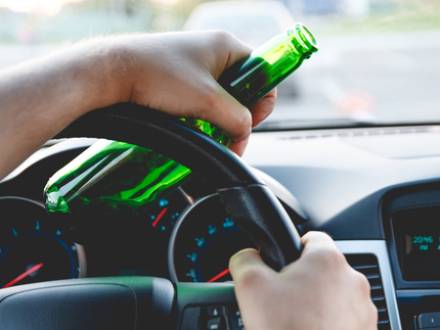 Facing an OWI (Operating While Intoxicated) charge for the first time in Wisconsin can be downright scary. You may figure that, since this is your first OWI charge, you do not need an attorney and can keep a low profile by avoiding the expense or publicity of hiring a lawyer. Unfortunately, this is one of the most common mistakes people make in OWI that can make the consequences they are facing much more serious.
Facing an OWI (Operating While Intoxicated) charge for the first time in Wisconsin can be downright scary. You may figure that, since this is your first OWI charge, you do not need an attorney and can keep a low profile by avoiding the expense or publicity of hiring a lawyer. Unfortunately, this is one of the most common mistakes people make in OWI that can make the consequences they are facing much more serious.
Understanding this and some of the other most common pitfalls can help you avoid costly missteps and protect your rights. Consulting a knowledgeable Wisconsin criminal defense attorney early in the process is the single most important thing you can do to make sure you face minimum consequences and get back to normal life as quickly as possible.
Mistake #1: Assuming You Have No Defense and Should Just Make a Plea Deal
Many people believe that an OWI charge is impossible to fight, especially if they failed a breathalyzer or field sobriety test. However, these tests are not foolproof, and various factors, such as improper test administration, medical conditions, or equipment malfunctions, can impact the results.
The Most Serious Traffic Violations in Wisconsin
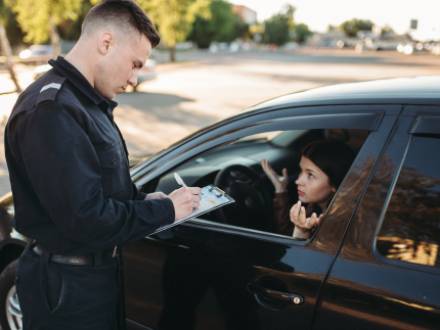 Traffic violations in Wisconsin can lead to serious consequences, especially for offenses that go beyond minor infractions. If you are facing a severe traffic violation in Waukesha County, you may be dealing with fines, a suspended license, or even jail time. It is important to understand these violations and how an experienced Wisconsin criminal defense attorney can help defend your rights.
Traffic violations in Wisconsin can lead to serious consequences, especially for offenses that go beyond minor infractions. If you are facing a severe traffic violation in Waukesha County, you may be dealing with fines, a suspended license, or even jail time. It is important to understand these violations and how an experienced Wisconsin criminal defense attorney can help defend your rights.
Serious Traffic Violations in Wisconsin
Certain traffic violations are treated as especially severe under Wisconsin law. Here are some of the most serious offenses:
Operating While Intoxicated (OWI)
Driving under the influence (OWI) is one of the most serious traffic offenses. Penalties include:
-
Fines from $150 to $25,000
When Can Someone in Wisconsin Get Out of Jail or Prison on Parole?
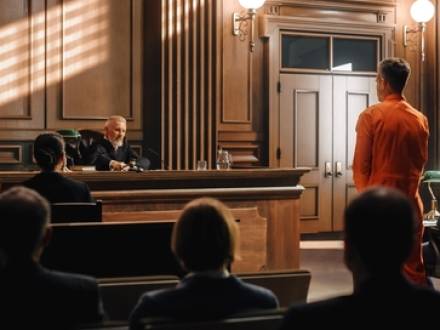 In Wisconsin, parole allows someone to be released from prison after serving part of their sentence, but it is not available to everyone. If someone is convicted of a crime and wondering when they can apply for parole, the answer depends on the date of their offense and the crime involved. For example, Wisconsin abolished parole for crimes committed after December 31, 1999. People sentenced after that date are not eligible for parole and must serve a set percentage of their sentence under "truth-in-sentencing" laws. However, those convicted before 2000 may still be eligible. If you are unsure about your parole eligibility, contact a Wisconsin criminal defense attorney for personalized guidance.
In Wisconsin, parole allows someone to be released from prison after serving part of their sentence, but it is not available to everyone. If someone is convicted of a crime and wondering when they can apply for parole, the answer depends on the date of their offense and the crime involved. For example, Wisconsin abolished parole for crimes committed after December 31, 1999. People sentenced after that date are not eligible for parole and must serve a set percentage of their sentence under "truth-in-sentencing" laws. However, those convicted before 2000 may still be eligible. If you are unsure about your parole eligibility, contact a Wisconsin criminal defense attorney for personalized guidance.
Are There Crimes in Wisconsin That Are Not Eligible for Parole?
Yes, certain crimes in Wisconsin make someone ineligible for parole. Under "truth-in-sentencing" laws, anyone convicted of crimes committed after December 31, 1999, must serve all of their sentence without the possibility of parole. Some people may be eligible for something known as "early release."
How is Battery Prosecuted in Wisconsin Criminal Law?
 At some point in our lives, we have all witnessed a scene where tensions run high, and things escalate to a fistfight. Despite the spontaneous, spur-of-the-moment nature of these outbursts, they can carry consequences that last far longer than a one or two minute brawl. If you think you are about to get involved in a physical altercation, the best thing you can do is disengage.
At some point in our lives, we have all witnessed a scene where tensions run high, and things escalate to a fistfight. Despite the spontaneous, spur-of-the-moment nature of these outbursts, they can carry consequences that last far longer than a one or two minute brawl. If you think you are about to get involved in a physical altercation, the best thing you can do is disengage.
In the fallout of a fight, you may be charged with battery, which can carry jail time and hefty fines depending on the severity of the act. An experienced Waukesha County, WI criminal defense attorney can help you figure out your best defense and represent you fairly in court.
How Severe is a Battery Charge in Wisconsin?
The seriousness of a battery charge is measured by the intent to cause harm, no prior consent from the victim, and the damage inflicted to the victim. There are distinct levels of battery in Wisconsin law, listed below from least to most serious:
How Could the Proposed WI 2024 Expungement Law Help You?
 A proposed expungement law in Wisconsin could allow thousands of eligible individuals to wipe the slate clean and start fresh. We have all made mistakes in our lives. Those mistakes might have been because we were young and naïve, we listened to someone in our lives that we should not have, or we simply made a bad decision.
A proposed expungement law in Wisconsin could allow thousands of eligible individuals to wipe the slate clean and start fresh. We have all made mistakes in our lives. Those mistakes might have been because we were young and naïve, we listened to someone in our lives that we should not have, or we simply made a bad decision.
The mistakes might have resulted in the necessity of hiring a criminal defense attorney, spending time in jail, and paying steep fines. A single mistake in an individual’s life should not follow him or her forever, yet that is often the reality, particularly since Wisconsin’s expungement laws are among the strictest in the United States.
The proposed change in Wisconsin’s expungement law would expand eligibility for the expungement of prior criminal records, providing many with a fresh start. The legislation also pushes law enforcement to place their focus more on violent crimes in the state rather than issues like simple possession of marijuana. If you made a mistake and have paid your debt to society, speak to a knowledgeable Jefferson County, WI criminal defense attorney from Bucher Law Group, LLC for information regarding expungement.
Postpartum Depression in Wisconsin Criminal Cases
 When people imagine a woman who just gave birth to a healthy baby, they often think about a mother happily snuggling her cooing newborn. Unfortunately, for women who suffer from postpartum depression (PPD), that picture can seem a lot more like fantasy than reality. When PPD turns into postpartum psychosis, the severe confusion, depression, hallucinations, and suicidal ideation that can result can lead the mother to harm her child in a way she otherwise would never imagine. When facing charges of domestic violence, child endangerment, or even infanticide, an experienced Walworth County, WI criminal defense lawyer can advise you on whether postpartum depression can be used as a mitigating factor in your defense.
When people imagine a woman who just gave birth to a healthy baby, they often think about a mother happily snuggling her cooing newborn. Unfortunately, for women who suffer from postpartum depression (PPD), that picture can seem a lot more like fantasy than reality. When PPD turns into postpartum psychosis, the severe confusion, depression, hallucinations, and suicidal ideation that can result can lead the mother to harm her child in a way she otherwise would never imagine. When facing charges of domestic violence, child endangerment, or even infanticide, an experienced Walworth County, WI criminal defense lawyer can advise you on whether postpartum depression can be used as a mitigating factor in your defense.
Mitigating Factors in Wisconsin Criminal Cases
While judges tend to follow sentencing guidelines, many consider the surrounding factors. Some, like a history of violence and crime, are aggravating circumstances that could make a judge impose a harsher-than-average sentence for a particular crime. Other factors can be mitigating circumstances. If a defendant was a victim of violence in the past, contributes to her community, or has a history of being a stable, law-abiding citizen a judge might consider a more lenient sentence. As the Wisconsin Court of Appeals states: "Whether a particular factor will be considered as a mitigating or aggravating factor will depend on the particular defendant and case." In cases of mothers harming their babies, postpartum depression is increasingly being used as a mitigating factor in the defense’s case.
Getting a DUI in Wisconsin When You Are from Out-Of-State
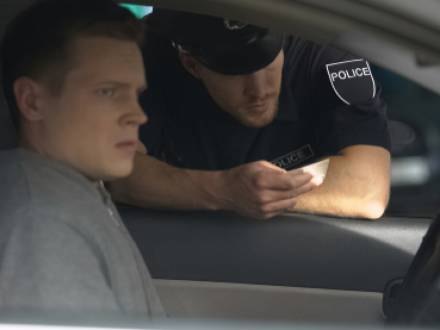 With college football season underway, many sports fans flock to Wisconsin to enjoy a favorite American pastime. Since tailgate parties, backyard barbeques, and beer are popular parts of the general festivities, it is no wonder that many visitors from out-of-state end up with a DUI arrest in parallel with the football schedule.
With college football season underway, many sports fans flock to Wisconsin to enjoy a favorite American pastime. Since tailgate parties, backyard barbeques, and beer are popular parts of the general festivities, it is no wonder that many visitors from out-of-state end up with a DUI arrest in parallel with the football schedule.
Since Wisconsin has different traffic laws than other states, even neighboring states that are an easy drive away, it can be confusing and stressful for visitors to get pulled over and face the possibility of criminal charges. If this happens to you, speak with a knowledgeable Wisconsin DUI lawyer who understands how this type of case can affect you in your state of residence.
How Is an Out-of-State DUI in Wisconsin Penalized?
Wisconsin has different laws than other states. In general terms, it can be easier in some other states to avoid a DUI conviction, through plea bargaining, for example. In other states, you can sometimes get reduced charges, have your license suspended temporarily, be ordered to attend road safety classes, and then get your case dismissed and maintain a clean record.
Can I Go to Jail for Covid Fraud in Wisconsin?
 As the COVID-19 pandemic began to have a noticeably harmful impact on people’s physical, mental, and financial health, Congress passed various measures to provide financial aid to people and businesses that were struggling. Hundreds of billions of dollars were set aside for companies, small businesses, and unemployed individuals.
As the COVID-19 pandemic began to have a noticeably harmful impact on people’s physical, mental, and financial health, Congress passed various measures to provide financial aid to people and businesses that were struggling. Hundreds of billions of dollars were set aside for companies, small businesses, and unemployed individuals.
However, with all these relief funds becoming available, claims of fraud increased. After uncovering over $8 billion in relief fraud, the Department of Justice formed the COVID-19 Fraud Enforcement Task Force to address it. Over 1,000 people have already faced criminal charges related to the COVID-19 relief funds. If you believe you might be accused of this form of federal fraud, speak with a skilled Waukesha County, WI criminal defense attorney to learn more.
What Is COVID Fraud?
Federal COVID-19 fraud refers to people illegally obtaining benefits from federal relief programs. If you are facing these charges, it means you are being accused of:
What You Need to Know about Federal Gun Safety Law
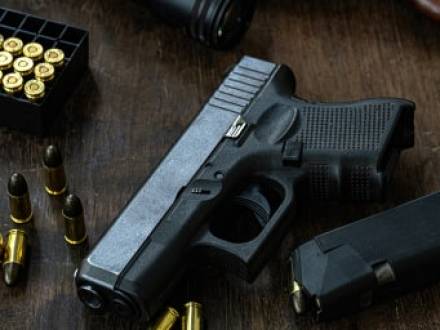 Gun laws are a topic that can inspire heated debate for many people. Some people are heavily focused on gun control and limiting who can possess which type of weapons, while others are dedicated to the constitutional right to bear arms. Wherever you fall on this issue, it is clear that the gun safety law that President Biden signed in 2022 has started to take effect. According to a recent report, it has led to over 500 cases of federal weapons charges. If you are facing criminal charges related to the new law, speak with a skilled Racine County, WI criminal defense lawyer to understand how this new federal legislation can affect you.
Gun laws are a topic that can inspire heated debate for many people. Some people are heavily focused on gun control and limiting who can possess which type of weapons, while others are dedicated to the constitutional right to bear arms. Wherever you fall on this issue, it is clear that the gun safety law that President Biden signed in 2022 has started to take effect. According to a recent report, it has led to over 500 cases of federal weapons charges. If you are facing criminal charges related to the new law, speak with a skilled Racine County, WI criminal defense lawyer to understand how this new federal legislation can affect you.














 262-446-9222
262-446-9222 262-446-9885
262-446-9885






